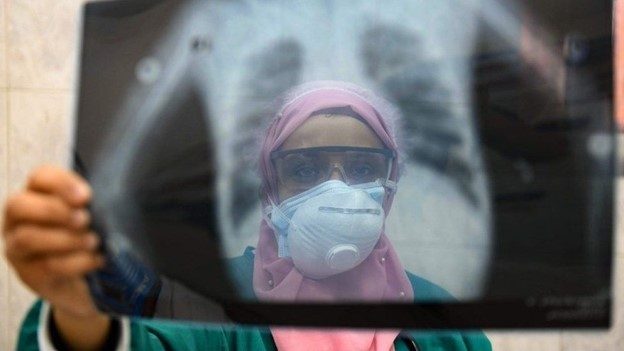
The health sector in Egypt is facing multiple ongoing crises due to a sharp decline in the number of doctors, local and international media have reported.
Financial problems have been cited as a reason for resignation of many doctors and leaving the country for working abroad. Minister of Health and Population Hala Zayed told parliament that 67 percent of Egyptian doctors work overseas, reported Middle East Monitor.
According to The Economist, there were fewer than five doctors for every 10,000 people in 2018, compared with 11 per 10,000 in 2014. The number of doctors working in public hospitals decreased by a third during the same period.
A study prepared by the Supreme Council of Universities and the Technical Office of the Egyptian Ministry of Health in mid-2019 found that out of 213,000 registered physicians in Egypt, only around 82,000 — just 38 per cent — are still in the workforce.
“Is the Minister of Health really unaware of the reason why doctors emigrate?” asked former Doctors’ Syndicate assistant secretary Mona Mina. “First, there is a severe problem of low salaries, and then the abuses that they are exposed to and arbitrary administrative procedures imposed on them.”
Many doctors blame the government for not adhering to the provisions of the 2014 Egyptian Constitution that bind the state to spend 3 per cent of its annual gross domestic product (GDP) on healthcare.
The repercussions of the coronavirus pandemic have deepened the crisis, said the Egyptian Centre for Economic Studies (ECES). The NGO noted that this indicated that there is a significant shortage of healthcare personnel in Egypt as a result of doctors emigrating.
During the first wave of the pandemic, about 7,000 doctors left Egypt to work elsewhere, while 400 actually died from Covid-19.
The crisis was exacerbated when the health minister told the House of Representatives two days ago that she could not intervene to include doctors who died from the coronavirus in the fund allocated for army and police victims of war. She noted that such a measure does not fall within her jurisdiction, to the dismay and anger of the Doctors’ Syndicate.
“If the minister cannot, then who can?” asked one syndicate member, Shaaban Rashwan. “The whole matter needs political will to achieve this step, especially since Law No. 16 of 2018 authorises the Prime Minister to [include other categories] after the competent minister submits the proposal, which means that [Hala Zayed] is negating herself.”
Rashwan told Arabi21 that the crisis over the number of doctors is relatively significant. “However, the aim of officially disclosing it today is not to find more doctors to work in hospitals, but rather to allow public and private medical schools to accept additional batches of students.”
He also stressed that the goal is not to have more qualified doctors because the problem of emigration will not stop. “We need to ask ourselves if the graduates of public and private colleges who have paid hundreds of thousands of pounds to study accept working in public hospitals for a salary of less than 3,000 Egyptian pounds. The crisis must be addressed financially and ethically.”
The former reporter of the Legal Affairs Committee of the Doctors Syndicate, Ahmed Shousha, said that the Ministry of Health does not provide doctors with even the bare minimum of equipment and moral support. “The crisis does not lie in the shortage of doctors per capita, but rather in the shortage of hospitals in which our doctors work. Consequently, some hospitals are dangerously overcrowded.”
In his interview with Arabi 21, Shousha warned against an unproductive accumulation of graduated doctors in light of the failure to apply the minimum of constitutional provisions in favor of the health sector.
“What is currently happening is that the health train in Egypt is being pushed in reverse and the increase in the number of medical graduates serves the interests of businessmen and owners of private colleges but does not solve the crisis of the shortage of doctors,” he said.



